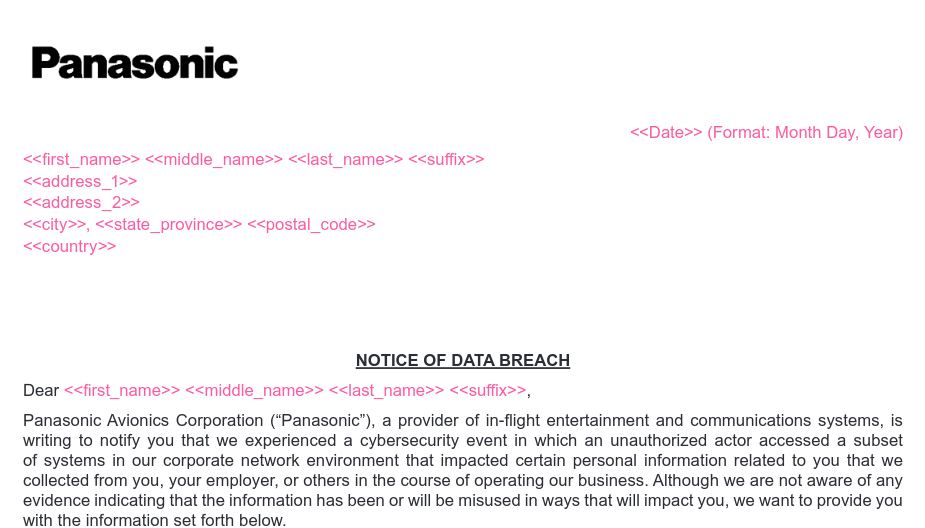In a shocking revelation, Panasonic Avionics Corporation (PAC) has confirmed that it fell victim to a cyberattack at the close of 2022, resulting in the potential compromise of personal information belonging to employees. The breach, which occurred within the internal network systems of PAC, was unearthed approximately a year ago on December 30, 2022. A subsequent investigation, conducted with external assistance, concluded early this month, disclosing the unsettling possibility of leaked personal information of current and former employees associated with Panasonic’s Avionics Business Unit (ABU) and PAC.
The compromised data is reported to include sensitive details such as names, phone numbers, bank account information, and various human resources and employment-related data. However, the specific number of affected individuals remains undisclosed. Details regarding the cause of the breach, the point of entry, and the existence of any threats made during the cyberattack have not been made public. Importantly, PAC has emphasized that the breach was confined to a limited network within the company, and no leakage of confidential information beyond employee data occurred. The corporations have assured stakeholders that there has been no impact on their business continuity.
In response to mounting inquiries, PAC and its associated entities have reported the incident to relevant authorities. They initiated the process of notifying affected individuals through a combination of email and written communication starting on December 14th. As of now, no reports have surfaced regarding the leaked personal information being publicly disclosed or misused.
One key aspect that has raised eyebrows is the nearly year-long gap between the discovery of the cyberattack and its public disclosure. PAC clarified that this delay was attributed to the extensive nature of the investigation, conducted in collaboration with external experts. The aim was to comprehensively assess the overall situation and the potential impact on personal information before making the breach public.
This cyber incident underscores the growing threat landscape in the digital age, where even major corporations are not immune to sophisticated cyberattacks. The breach at PAC serves as a stark reminder of the need for robust cybersecurity measures and swift response protocols in an era where personal and sensitive data are under constant threat.
As the affected individuals await more information about the extent of the breach and potential risks, questions linger about the broader implications of this incident for both PAC and the aviation industry at large. The fallout from such cyber incidents often extends beyond the immediate breach, affecting customer trust, company reputation, and regulatory scrutiny.
The incident will likely prompt a reevaluation of cybersecurity practices across industries, as companies strive to stay one step ahead of evolving cyber threats. As investigations continue and the aftermath unfolds, it remains to be seen how PAC and its affiliated entities will fortify their defenses and mitigate the impact of this cyberattack on their employees and stakeholders.
